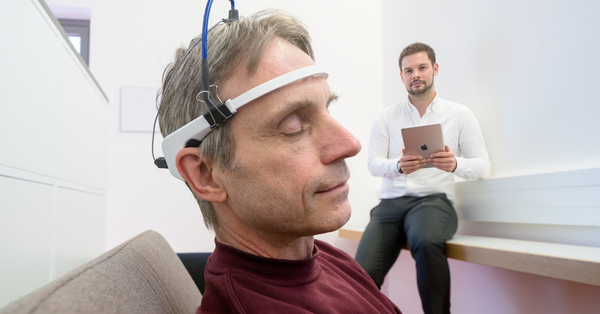
Unveiling the Future: From Telepathy to Brain-Computer Interfaces - Advancements in Brain Linking Science
By Adedayo Oyetoke, Published on: June 23rd 2023 3 min, 590 word Views: 1104
In the realm of science and technology, few frontiers captivate the imagination quite like the human brain. It is the epicenter of our thoughts, emotions, and consciousness. Over the years, scientists and visionaries have tirelessly pursued the idea of connecting our minds directly to machines, blurring the line between science fiction and reality. Today, we embark on a journey through the remarkable advancements in brain linking science, exploring the evolution from telepathy to brain-computer interfaces (BCIs) and the profound implications they hold for humanity.
The Quest for Telepathy:
Telepathy, the ability to communicate thoughts and ideas directly from one mind to another, has long been a subject of fascination. While the concept of telepathy has been explored in various forms of literature and media, its realization in the scientific realm has proven elusive. However, recent breakthroughs in brain research have brought us closer to understanding the neural mechanisms underlying communication and paved the way for more tangible forms of brain linking.
Decoding the Brain:
To unlock the secrets of the mind, scientists have delved into the intricate workings of the brain. Through the use of advanced imaging techniques such as functional magnetic resonance imaging (fMRI) and electroencephalography (EEG), researchers have made significant strides in decoding brain activity. By analyzing patterns of neural activity, they have successfully reconstructed images, deciphered speech, and even enabled paralyzed individuals to control robotic limbs using their thoughts alone.
Enter Brain-Computer Interfaces (BCIs):
Building upon the foundation of brain decoding, BCIs have emerged as a groundbreaking technology that bridges the gap between the human brain and external devices. BCIs allow individuals to control computers, prosthetic limbs, and other devices directly through their thoughts. This revolutionary technology holds immense potential for individuals with disabilities, offering them newfound independence and mobility.
Neuralink: A Visionary Venture:
One cannot discuss advancements in brain linking science without mentioning Neuralink, a company founded by visionary entrepreneur Elon Musk. Neuralink aims to develop implantable BCIs that seamlessly integrate with the human brain, enabling a symbiotic relationship between humans and machines. Musk envisions a future where BCIs not only restore lost functionality but also enhance human capabilities, opening up a world of possibilities previously confined to the realm of science fiction.
The Promise and Ethical Considerations:
While the potential benefits of BCIs are vast, they also raise important ethical considerations. Privacy, security, and the potential for misuse are among the concerns that must be addressed as this technology progresses. Striking a balance between innovation and safeguarding individual rights will be crucial in ensuring the responsible development and deployment of BCIs.
Beyond BCIs: The Future of Brain Linking:
As we look to the future, the advancements in brain linking science hold the promise of transforming not only the lives of individuals with disabilities but also the way we interact with technology. From seamless communication between humans and machines to the potential for collective intelligence, the possibilities are awe-inspiring. However, it is essential to approach these advancements with caution, ensuring that they are developed and utilized in a manner that benefits all of humanity.
Conclusion:
The journey from telepathy to brain-computer interfaces has been a testament to human ingenuity and the relentless pursuit of knowledge. As we stand on the precipice of a new era in brain linking science, we must embrace the potential of these advancements while remaining vigilant in addressing the ethical challenges they present. The future is beckoning, and with it, a world where the boundaries between mind and machine blur, forever changing the way we perceive ourselves and the world around us.
